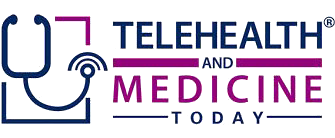High School Health Tech Pioneer Advances Disease Detection and Patient Accessibility
Student founders working on a start-up the past 2 years have created a 30-second home based AI brain health evaluation utilizing advanced imaging and neural analysis for non-invasive early disease detection. Personalized and tailored, this new gaze tracking system is non-invasive, has remote capabilities, and costs less - bringing remote detection ...
By Say Mattapalli, Sweta Sneha, PhD
Telehealth’s Role Enabling Sustainable Innovation and Circular Economies in Health
Digital health interventions including telehealth support an increasingly broad range of improvement goals for prevention and treatment. Limitations obstructing the many digital benefits of telehealth from reaching their full potential include lack of robust usability and user centered design, regulatory policy paradigms, lack of adequate high-qual...
By Dimitrios Kalogeropoulos
Comparison of Virtual and In-Person Tobacco Treatment Specialist Training
Purpose: There is limited research comparing virtual and in-person tobacco treatment specialist training. As a result of COVID-19, the Duke-UNC Tobacco Treatment Specialist Training Program (Duke-UNC TTS) transitioned from an in-person to a virtual format, allowing for a comparison of these two training formats. Materials and Methods: We conducted ...
By James Davis, MD, Sonia Clark, MHA, Jennifer Greyber, Jillian Dirkes, MSW, LCSW, Sally Herndon, MPH, Joyce Swetlick, MPH, Susan Trout, LCSW, MSPH, NCTTP, Farid Manshaii, Adam Goldstein, MD, MPH
Persisting Barriers to the Adoption of Telemedicine in Latin America After the COVID-19 Pandemic
The pandemic spurred a rapid uptake of telemedicine by sidelining or overcoming the various challenges of implementing remote patient-care solutions, identified in numerous studies. Although the pandemic was the major factor driving adoption of telemedicine and telehealth, there are still several barriers that health systems need to address. Howeve...
By Daniela Chueke, B.Soc.Sci
Telehealth in Medicine: Predictions 2023–2024
Each year, Telehealth and Medicine Today asks experts in the field to share their insights into the future and predict how telehealth will influence uptake and healthcare in the new year....
By Jiang Li
Eyes: The Gateway to Brain Health—Advancing Disease Detection and Patient Accessibility
In the past five years, artificial intelligence has revolutionized healthcare by enabling earlier detection, diagnosis, and treatment of diseases. A recent breakthrough involves using eye-tracking technology to identify ocular biomarkers, aiding in the early detection of conditions like Alzheimer's and neurodegenerative diseases. Eye movement tests...
By Sai Mattapalli, Rohan Kalahasty
Predictive Models to Optimize Resources in Tele-Critical Care in Distributed Hospital Networks
Background: Telemedicine creates the opportunity – in pandemic conditions and otherwise -- to spread health care to regions where intensivists and health services may not beavailable. It offers the opportunity to provide better patient care, decrease healthcare costs, and overall improve population health. Introduction: Critical ca...
By Rafael Palacios
Telehealth for Equitable Obstetric Care: Addressing Gaps for Patients, Providers, and Payers
In June 2022, President Biden and Vice President Harris released their blueprint for addressing the maternal health crisis, stating their “vision for the future is that the United States will be considered the best country in the world to have a baby.” Currently, it is one of the worst among industrialized countries despite the US spend...
By Sabrina Movitz, MS, Rachel Mayer Ediger, Alison Dingwall, Yvonne Butler Tobah
Metaverse Challenges & Opportunities in Healthcare
Is technology improving patient outcomes? Can the metaverse be a tool to improve patient experience and engagement? What about access and underserved communities?Tune in for multidisciplinary perspectives from big tech, academia, and a metaverse company sharing how technologies are impacting community health, global health and policy, and higher ed...
By Aashima Gupta, Radhika Iyengar, Sweta Sneha, PhD, Tory Cenaj
Penetration of Telemedicine and Telehealth in Latin American Hospitals
This article discusses the penetration of telemedicine in Latin America in relation to its implementation by hospitals in the region, considering key Latin American hospital markets, including Argentina, Brazil, Chile, Colombia, Mexico, and Peru. It gives an overview of the hospitals, the challenges they face in implementing telemedicine and telehe...
By Carolina Cházaro






